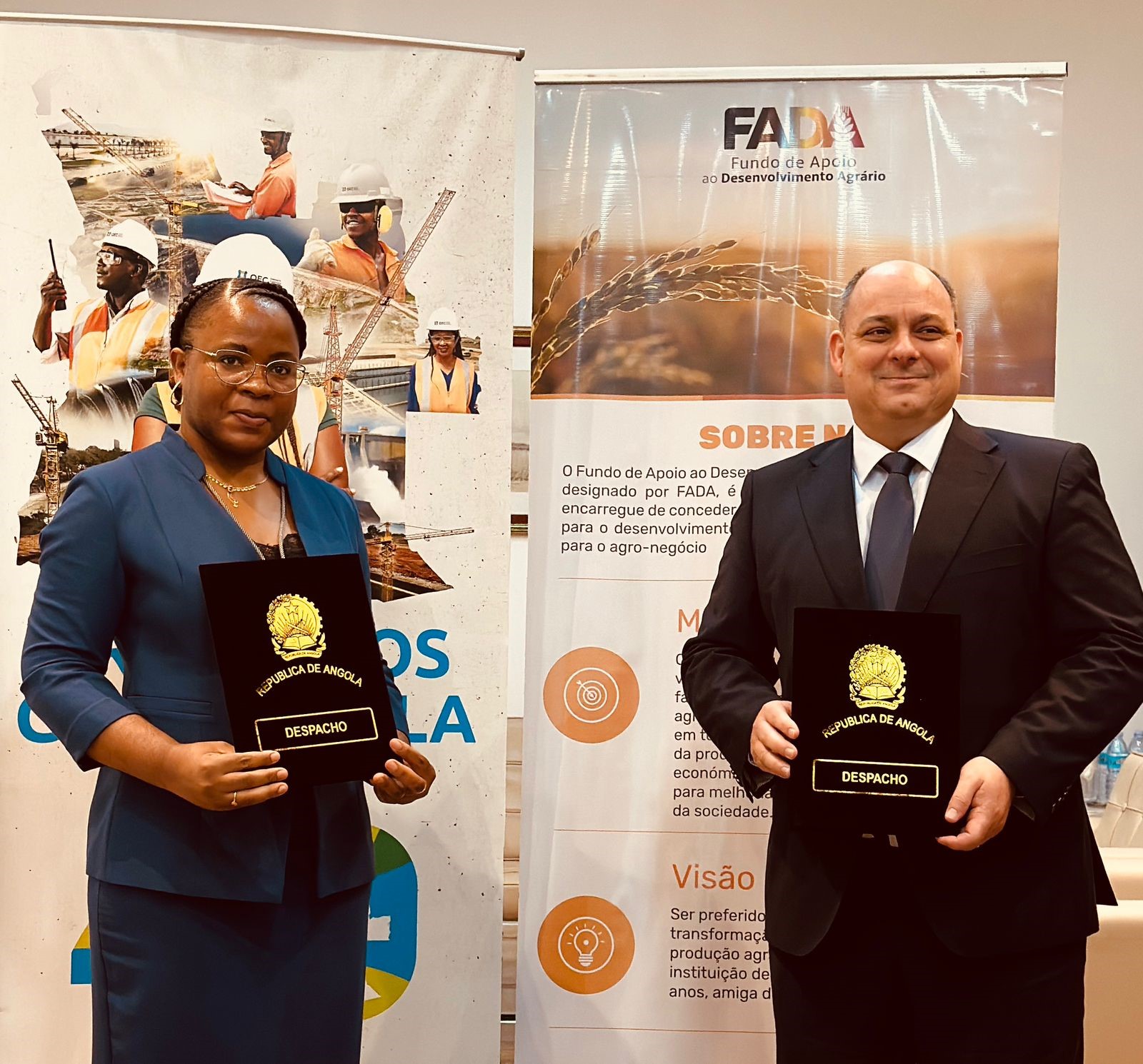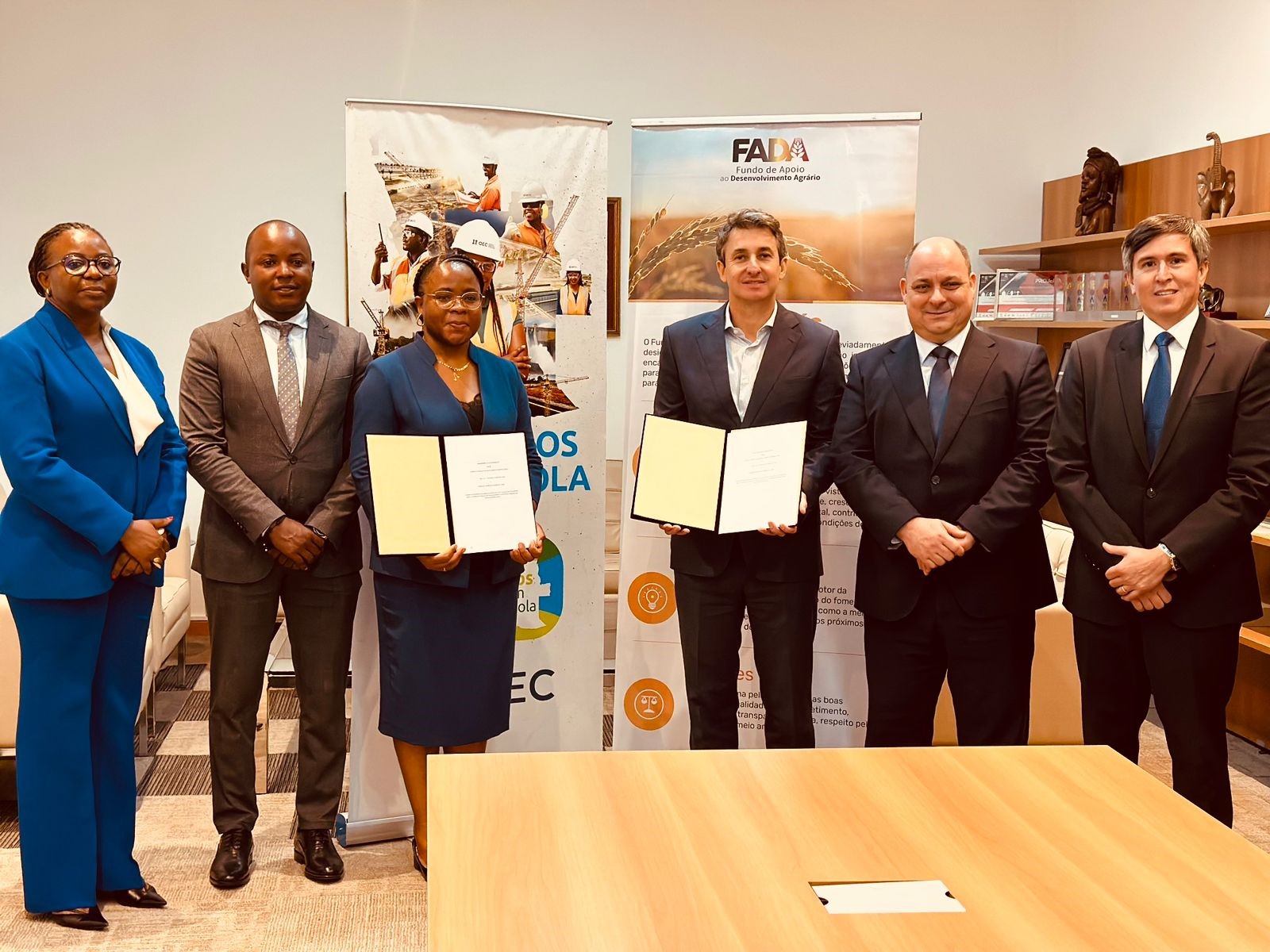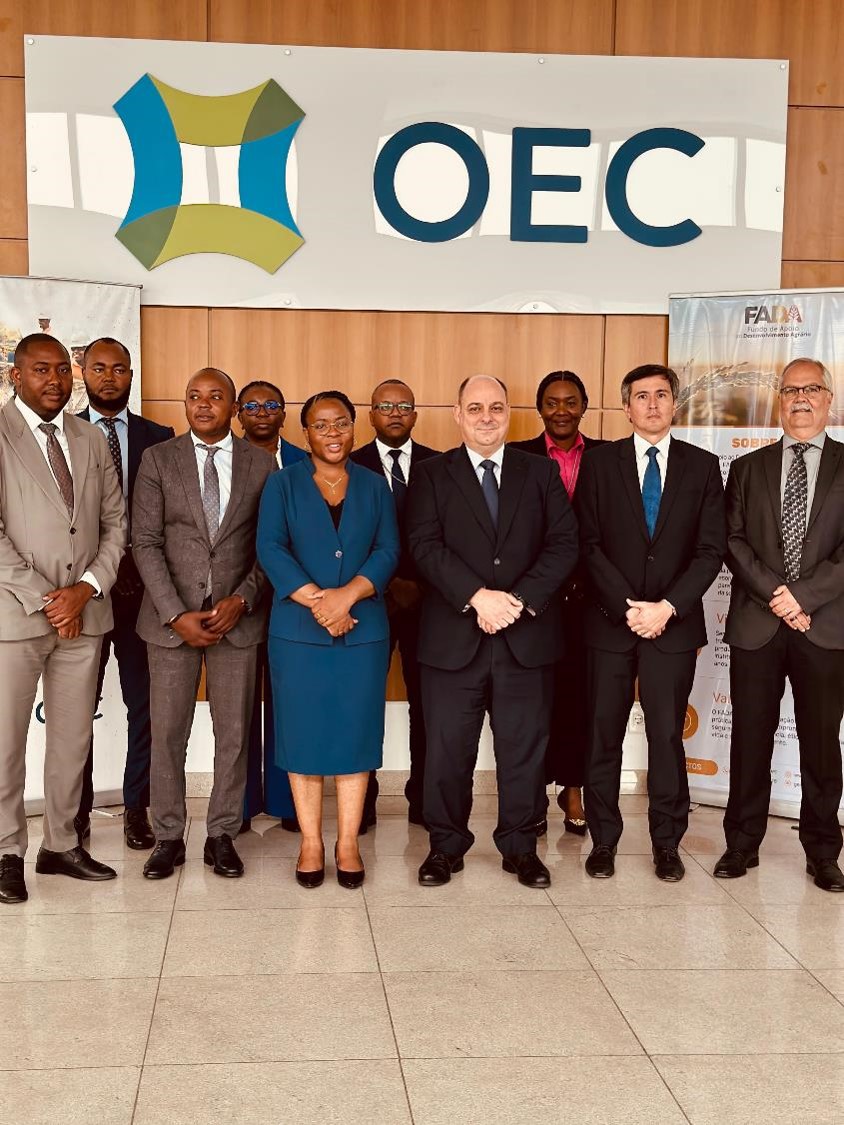The Cantareira Consortium, serving the concessionaire Via SP Serra, completed last Friday (February 6) the opening of the outer...
OEC and Norberto Odebrecht Foundation sign memorandum with FADA to support family farming in Angola
DATE: 12/30/2024
OEC in Angola and the Norberto Odebrecht Foundation signed a Memorandum of Understanding (MoU) with the Agricultural Development Support Fund (FADA) to implement the project “Produce to Transform Lives,” which aims to strengthen family farming in Angola. The agreement establishes a rural development program focused on technical assistance, financing, and training of small agricultural producers, contributing to increased productivity and competitiveness of agriculture in the country.
The program will be implemented within the framework of the Integrated Development and Growth Program with Sustainability (PDCIS), promoted by the Norberto Odebrecht Foundation, which aims to promote social and economic inclusion through sustainable development, using technologies and strategies already successfully applied in Brazil.
Felisbela Francisco, Chair of the FADA Board of Directors, stated: “the signing of this memorandum represents an important step towards strengthening family farming in Angola, aligning with FADA’s goals of promoting social inclusion and increasing agricultural productivity. This project has the potential to transform the lives of thousands of families and significantly contribute to the development of the agricultural sector in the country”.
Marcus Azeredo, DS Africa, reinforced the importance of this collaboration, saying: “OEC has been committed over the years to projects with social and sustainable impact. We believe that by supporting the development of family farming in Angola, we are contributing to the country’s future and the well-being of its rural populations”.
The project will include, among other actions, a working visit by FADA to the Lower South of Bahia, Brazil, another by the Norberto Odebrecht Foundation team to Angola to finalize the scope and methodology of the diagnosis, present the pilot program, and sign the implementation contract, which should occur by the end of the first half of 2025.
The first phase of the program will cover the training and financing of small producers, as well as providing technical support throughout the production cycle.






No comments